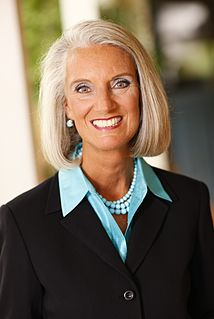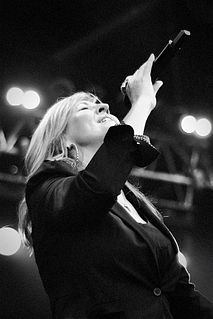A Quote by Richard John Neuhaus
One would like to believe that people who think of themselves as devout Christians would also behave in a manner that is in according with Christian ethics. But pastorally and existentially, I know that this is not the case, and never has been.
Related Quotes
Would I consider myself alt-right, if you want to ask that question? No, I don't. Not even a little bit. I think I am a pretty devout Christian, and I treat my walk with Christ very seriously - very seriously - in a way that I'm constantly looking at the things I do and how that affects me existentially.
If Christians could be trained to provide solid evidence for what they believe and good answers to unbelievers’ questions and objections, then the perception of Christians would slowly change. Christians would be seen as thoughtful people to be taken seriously rather than as emotional fanatics or buffoons. The gospel would be a real alternative for people to embrace.
People who think they have no belief quite often say they want to pray but they do not know who or what they could be praying to. Aquinas would not say to such people, 'Ah, but you see, if you became a believer, a Christian, we would change all that. You would come to understand to whom you are praying.' Not at all. He would say to such people, 'If you became a Christian you would stop being surprised or ashamed of your condition. You would be happy with it. For faith would assure you that you could not know what God is until he reveals himself to us openly.'
How would you feel if you had no fear? Feel like that. How would you behave toward other people if you realized their powerlessness to hurt you? Behave like that. How would your react to so-called misfortune if you saw its inability to bother you? React like that. How would you think toward yourself if you knew you were really all right? Think like that.
Christians believe that God came amongst us as a man, do they not? Yet the Muselmen say he was only a prophet, and that God has no name...We fight and kill each other so readily, yet if I had been born in the East, would I not believe the stories they believe, and if they had been born here, would they not be Christians?
I guess early on in my Christian walk, you know, people said to me, "Never question God" you know? But actually I just found Him to be such a good Father. He's such a good Father and He spoke to me in amazing ways that I'm sure I never would have learned some of these things on mountaintops, you know? I thought I knew how much he loved me, but then one day He asked me "What do you believe?" And I'm like, "I believe this and this and this and this" you know. I was a very good Christian in all my answers, and then he said, "No, no, what do you believe, Daughter, about how much I love you?"
We can know that the Christian God cannot exist. If he is all-powerful and all-good, as Christians maintain, there would not have been, for instance, the Holocaust. This is an inherent self-contradiction. So if Christians insist on having a God, they can do so, but if they have any respect for logic they'll have to redefine who he is.
It is doubtful that the dissection of living animals and plants could be done by those who believe them to be holy. A pantheist would not view trees as so many board feet in the manner a Christian would. A pantheist would be less likely to measure the number of acre feet coming over a waterfall than his Christian descendent, centuries later who had become a scientist. That which is sacred would be handled with a certain reverence.
Do we behave out of fear of punishment, or out of the demands of our heart? For me, it is the latter, as I would hope is true for all adults, thought I know from bitter experience that such is not often the case. To act in a manner designed to catapult you into heaven would seem transparent to a god, any god,for if ones heart is not in allignment with the creator of that heaven, then... what is the point?
Especially among Christians in positions of wealth and power, the idea of reading the Gospels and keeping Jesus' commandments as stated therein has been replaced by a curious process of logic. According to this process, people first declare themselves to be followers of Christ, and then they assume that whatever they say or do merits the adjective "Christian".






































